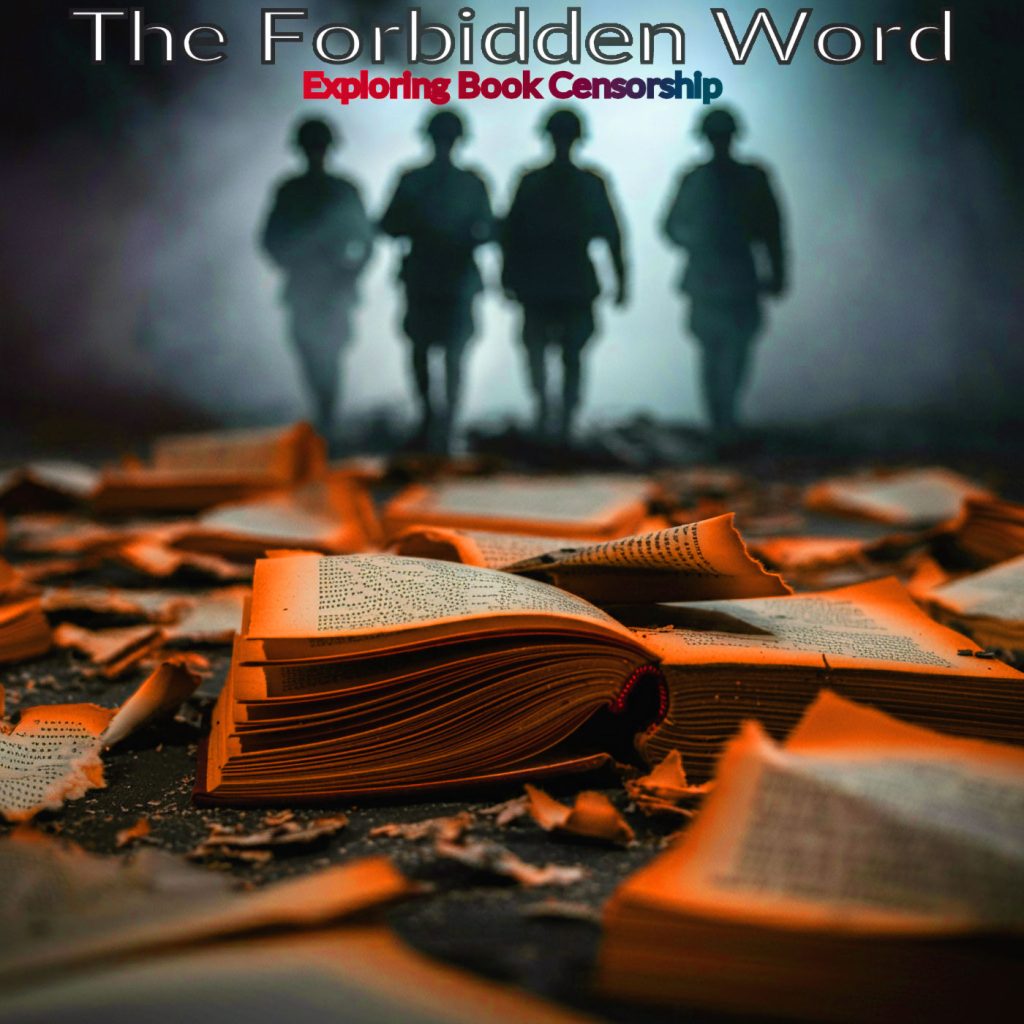Episode 1 – Introduction to Forbidden Word
Podcast: Play in new window | Download
The Forbidden Word…Exploring Book Censorship

Hello folks, welcome to The Forbidden Word…Exploring Book Censorship. , I’m Hank Wilson, your host and this is episode 1, an introduction to myself, the show, and what I hope to accomplish with it. Before I start talking about our subject, allow me to introduce myself I am a historian, an author, a retired minister. I have written 12 books, I work with a digital media publishing company, and I have written and published over 200 mobile applications. My work is distributed internationally, and I have a vested interest in people being able to express their thoughts and beliefs without anyone or any organization telling them what is ok to say, write, or believe and what is not ok to say, write, or believe. I have also had companies decline to publish several of my apps because they deemed them too controversial, so I am familiar with being told you’re banned.
The books I have written are in the categories of Texas History, Human Communications Education, Historical Fiction, Agricultural Education, and Religion (specifically Spiritual Self-Help). I host the Hidden History of Texas podcast, which you can find at arctx.org and I run my own ministerial website which is located at ctcministry.org and I think that about covers it. If you want to know more about me, there is a contact form on the ashbynavis.com website and also links to my other sites. Now to the matter at hand, what this show is all about.
During each episode of “The Forbidden Word…Exploring Book Censorship” I will be discussing the world of book censorship, or as we know it today, book banning and censorship in general. Censorship of books, social media posts, internet access, and video programs has become a topic that is causing much rancor and divided communities and even families. It is a part of the greater issue of trying to control what people say or write.
In this program, I will ask and hopefully answer questions about the entire concept of censorship or as it is in reality the prohibition against the free expression of ideas.
What’s the history of book bans? What types of books have been banned? What countries ban books? Why do people and governments want to ban books? What current battles over books are taking place around the globe and maybe even in your own hometown. As with all of my work, I approach things from the perspective of a historian and the interdisciplinary perspective, in that, I believe there are no simple answers to the questions we face as a society.
In order to truly have a conversation about book censorship (book banning) or censorship in general, we have to agree on what we mean by censorship? I think we all can generally agree that it means to prohibit or control what people hear, read, or view. It’s a way governments and powerful organizations try to control individuals in order to create a uniform way of viewing and thinking about issues and life in general.
It’s not a new concept, it’s been practiced by governments for centuries. Every nation has its own set of laws and rules when it comes to how they control their citizens. Secular totalitarian governments such as China and Russia try to control what type of communication reaches their citizens. Religious governments try to block anything that might cast doubt about the dominant religion. Secular European governments try to control by limiting words and ideas they think might ‘offend’ another. Technically, the United States does not have or allow any suppression of free speech or the expression of ideas by the government. In fact, such prohibitions themselves are expressly forbidden by the Constitution of the United States. In article 1 of the Bill of Rights (which are actually the 1st 10 amendments to the Constitution) it says. “Congress shall make no law respecting an establishment of religion, or prohibiting the free exercise thereof; or abridging the freedom of speech, or of the press; or the right of the people peaceably to assemble, and to petition the Government for a redress of grievances.”
And the phrase ‘freedom of speech’ is at the heart of what causes confusion. That is the phrase you hear people yelling whenever another person tells them not to say something. The amendment only says, that “Congress” can’t tell us what to say or not to say. Private media companies can and do limit what they print, social media sites can and do limit what people are allows to write. And that word “congress’ is where some communities and activists believe they can ban books from public libraries and also from school libraries. You see, according to what are call ‘strict textualists’ those that believe you have to interpret the Constitution exactly as written. So in their minds, if the city council or the state want to tell you what to say or write or publish, they are within their constitutional rights.
On the other side of the argument are those who believe that the word Congress can actually be interpreted to mean any governmental body, including city councils, county commissioners, or state legislature. And thus, they are prohibited from imposing restrictions. With a conservative Supreme Court that is comprised of Textualists, people should not be surprised if various state censorship laws and bans are ruled to be constitutional.
I think that’s going to do it for this episode, next week, I’ll look deeper into history of book bans around the world and also what is currently being banned. I’ll also delve deeper into some of the censorship laws that are on the books here in the United States.
Until then, read what you want to read and encourage others to do the same.
Peace y’all
